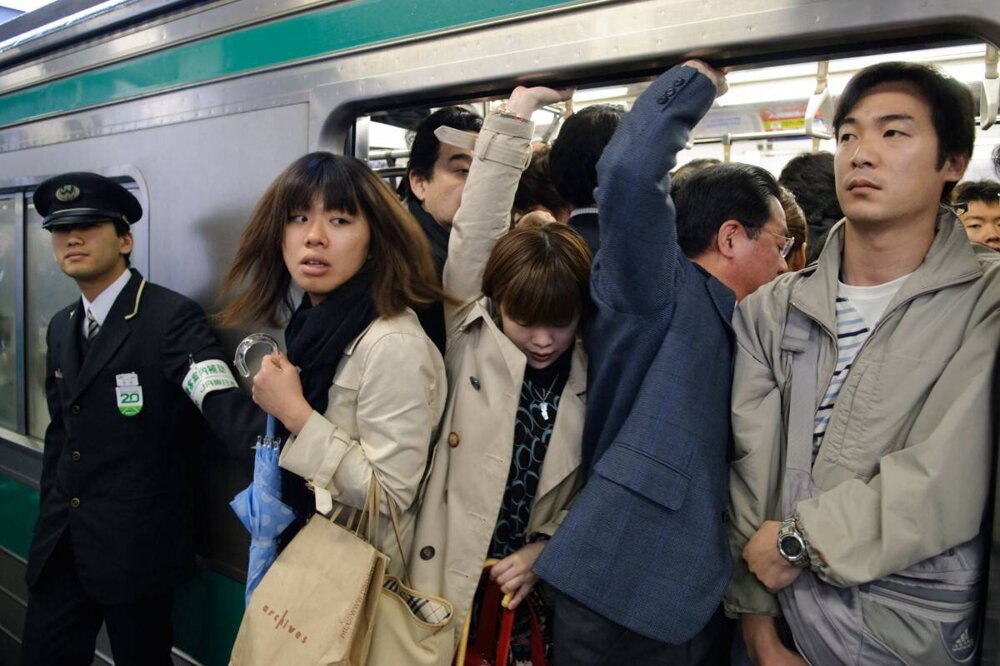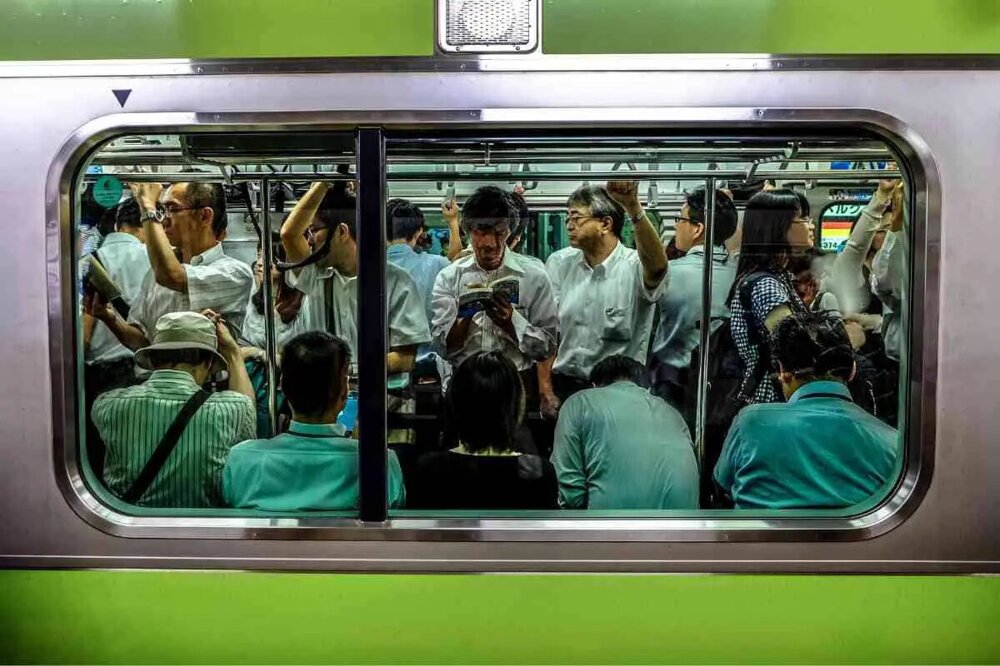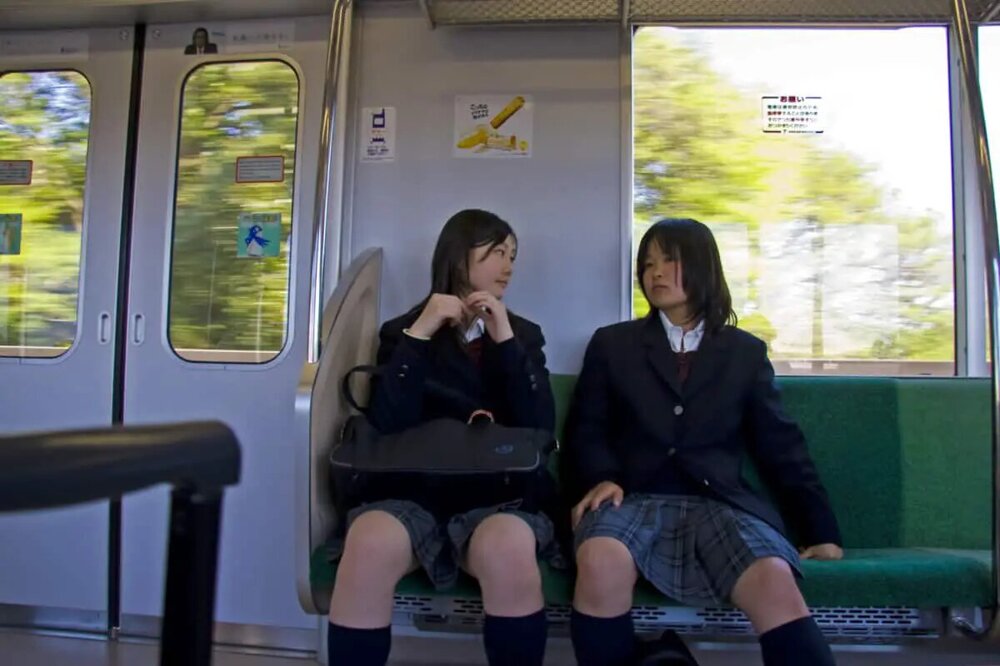Sudden touching of girls in the Japanese subway: who are Chicanas and what do they do (8 photos)
Chikan is a type of crime in Japan that is a serious problem for girls. This includes unwanted touching, groping, and harassment. Many girls and women easily become victims if they are not aware of such things. 
Most often this happens during the morning and evening crowds on the subway. But it also happens on paths in parks and secluded places. The phenomenon is indeed frequent and very common for such a developed country as Japan. It still exists because most victims do not speak out about what happened.
The term "Chican" describes both the act of harassment and the perpetrators. A Chican offender harasses people in public places, touching them privately or showing their “device” without permission.
The problem of large cities 
This problem is more common in large cities such as Kobe, Osaka and Tokyo, where everyone crams into train cars during rush hour.
It is easy for an offender to touch or grope innocent girls without the risk of being caught. The highest Chikan crime rate is on the Saikyo Line in Saitama Prefecture. In Tokyo, the subway is filled with people by more than 150%, and in Kobe and Osaka, by 120-130%.
Passengers are pushed into the carriages so that everyone can fit in - this is done by the staff so that the carriage doors close. There is no room to move at all inside, creating the perfect environment for Chicana activities. 
How do Chicanas operate and what do they do?
According to Osaka police, the method by which Chicanas achieve their perverted goal is how they choose their seat on the train. They usually look for a target standing at the door.
The potential victim cannot resist, pressed against the doors and hidden from the view of other passengers. This is what gives Chicanas an advantage and no one sees the crime being committed on an extremely crowded train.
What do they do with the victim: 
Why did Chicanas appear in Japan?
This is partly due to social norms in Japanese culture and the lack of resistance from victims.
Japanese women are traditionally non-confrontational, and are afraid of embarrassing others in public. So they don't even tell their abusers to stop.
Because the victims remain silent, Chicanas sincerely believe that their victims enjoy this treatment. When this happens, young girls freeze in fear. They are usually so scared that they cannot ask for help or say anything.
Moreover, in their horror, they simply allow it to happen in the hope that everything will end soon. This emboldens criminals.
How do Chicanos choose their target? 
Criminals determine their target while still on the platform waiting for the train. They try to find someone who looks quiet, weak and vulnerable.
This is because they are less likely to get angry and express their feelings during the activity. Because of embarrassment, young girls do not often talk about their experiences to the police, parents or teachers.
Consequently, schoolgirls are the most common targets because they are vulnerable and too young. Moreover, this happens to some girls all the time - Chicanas quickly identify them in the crowd, as if they sense them.
What measures are the authorities taking? 
In an attempt to combat Chicanas, women's cars were introduced on the subway system starting in 2002. Tokyo, Saitama, Chiba and Kanagawa offer special carriages for women during peak hours.
The railway company also places posters on trains and at every station informing the public that chicanism is a crime. There are also recommendations on what to do if this happens. 
The best defense is to either shout at the Chicana or attract the attention of other passengers. It is recommended to stand opposite the seats or with your back to the wall.
Of course, it is better for women to board a special carriage if it is available. They are also advised not to wear very thin, light-colored or tight clothing. The idea is to eliminateluring potential criminals. Girls should also not take the same train at the same time every day. 
This is such a developed Japan, where they cannot defeat sick people with problems in their personal lives.
























